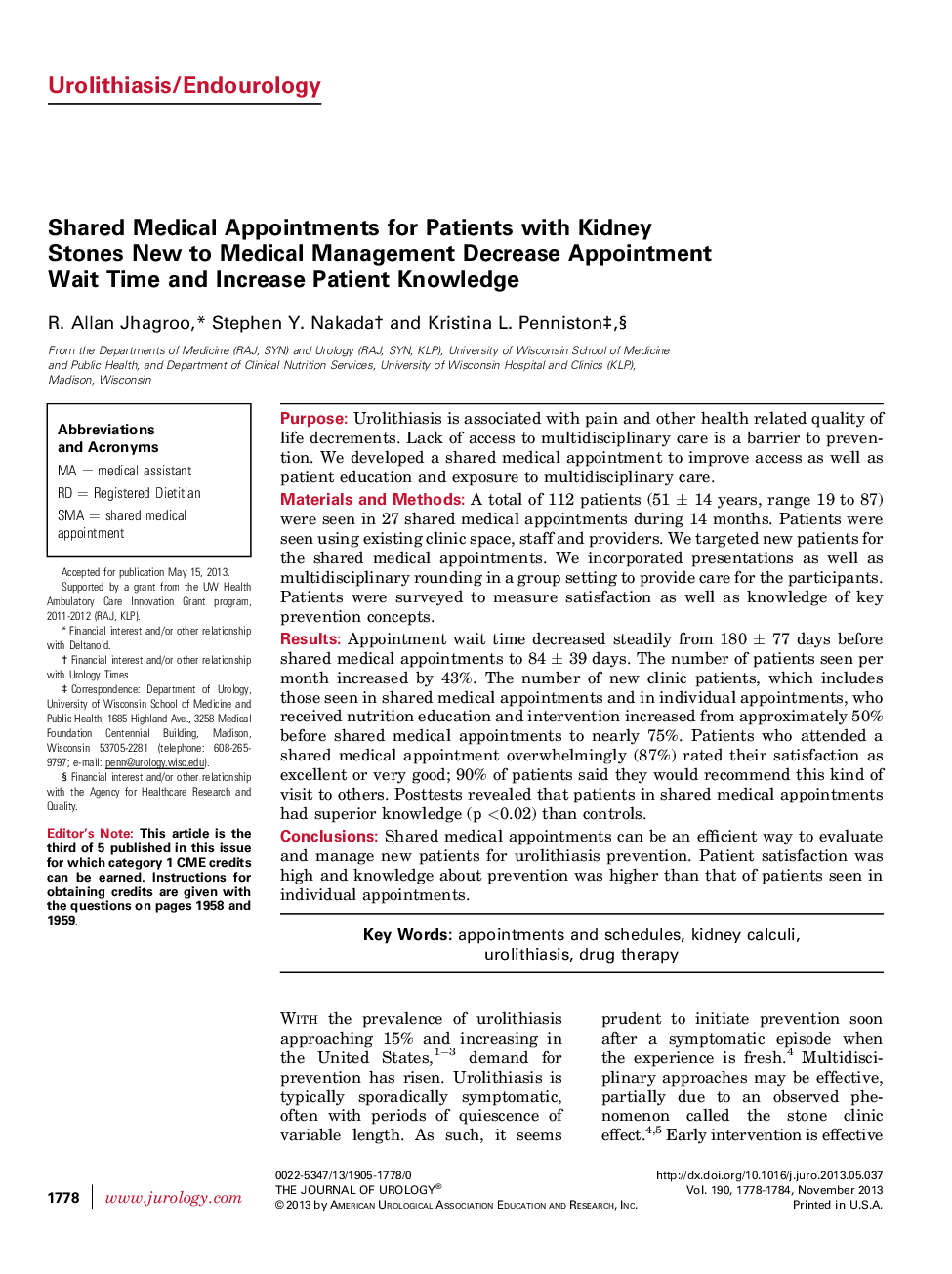| Article ID | Journal | Published Year | Pages | File Type |
|---|---|---|---|---|
| 3861849 | The Journal of Urology | 2013 | 7 Pages |
PurposeUrolithiasis is associated with pain and other health related quality of life decrements. Lack of access to multidisciplinary care is a barrier to prevention. We developed a shared medical appointment to improve access as well as patient education and exposure to multidisciplinary care.Materials and MethodsA total of 112 patients (51 ± 14 years, range 19 to 87) were seen in 27 shared medical appointments during 14 months. Patients were seen using existing clinic space, staff and providers. We targeted new patients for the shared medical appointments. We incorporated presentations as well as multidisciplinary rounding in a group setting to provide care for the participants. Patients were surveyed to measure satisfaction as well as knowledge of key prevention concepts.ResultsAppointment wait time decreased steadily from 180 ± 77 days before shared medical appointments to 84 ± 39 days. The number of patients seen per month increased by 43%. The number of new clinic patients, which includes those seen in shared medical appointments and in individual appointments, who received nutrition education and intervention increased from approximately 50% before shared medical appointments to nearly 75%. Patients who attended a shared medical appointment overwhelmingly (87%) rated their satisfaction as excellent or very good; 90% of patients said they would recommend this kind of visit to others. Posttests revealed that patients in shared medical appointments had superior knowledge (p <0.02) than controls.ConclusionsShared medical appointments can be an efficient way to evaluate and manage new patients for urolithiasis prevention. Patient satisfaction was high and knowledge about prevention was higher than that of patients seen in individual appointments.
